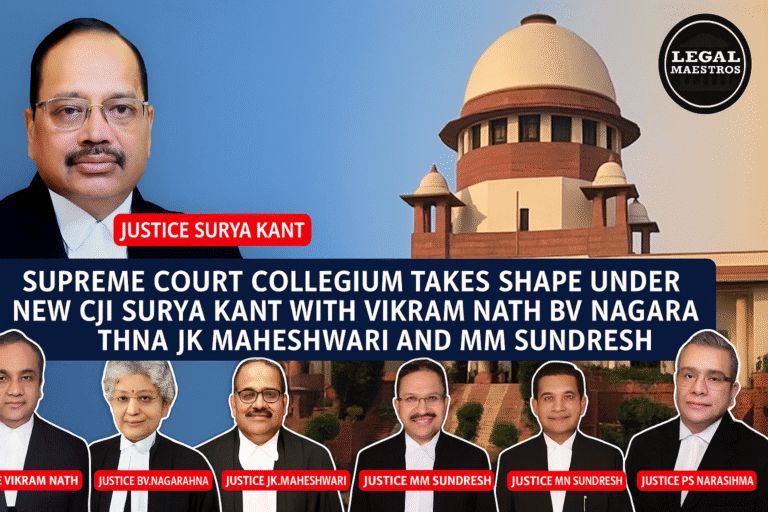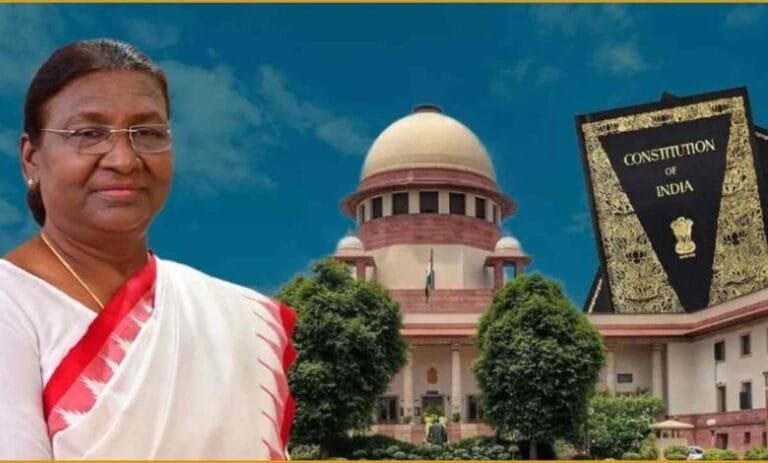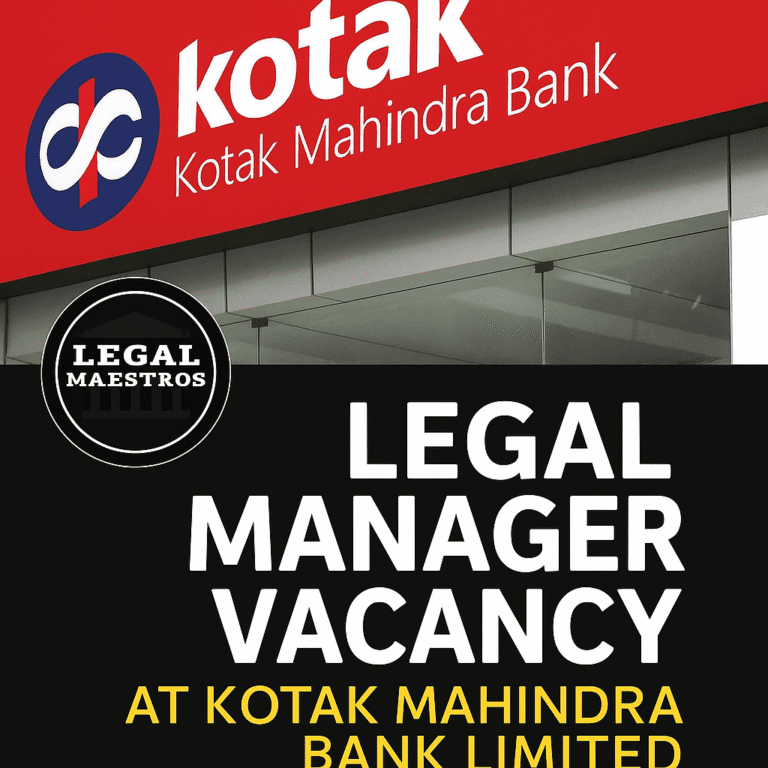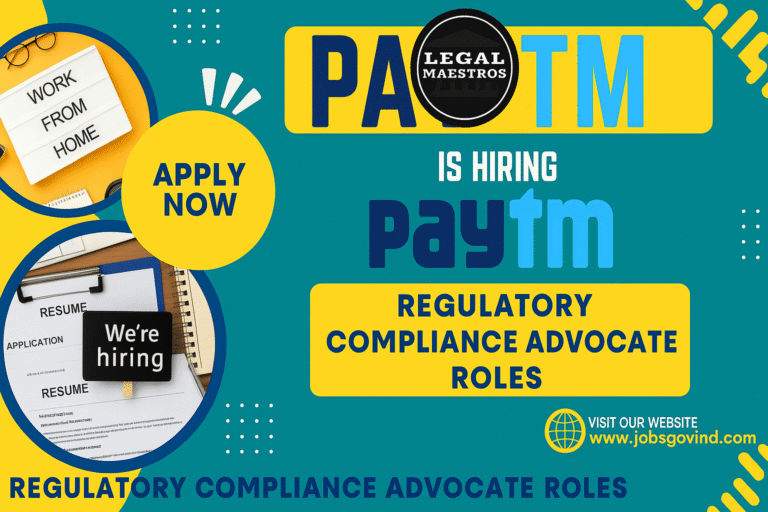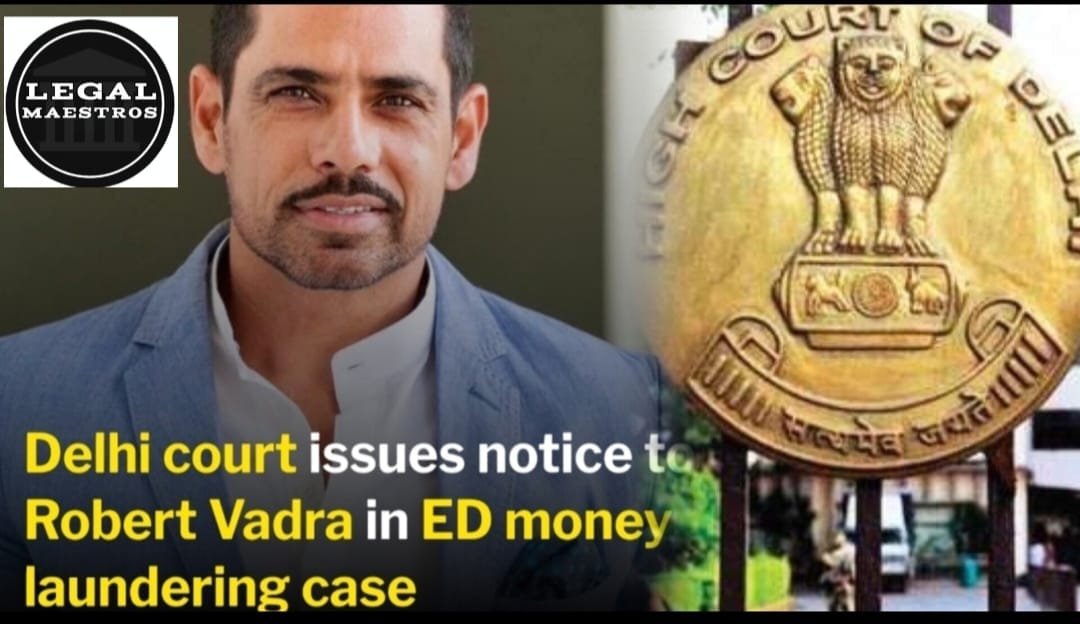
Delhi Court Notifies Robert Vadra in ED’s Gurugram Land Deal Money Laundering Case
Introduction
On the morning of early August 2025, Rouse Avenue Court in New Delhi offered a formal notice to Robert Vadra, the spouse of Congress MP, Priyanka Gandhi, requiring him to appear alongside two others in a cash laundering case connected to a land exchange in Gurugram Shikohpur village.
The ED has alleged that the company owned by Vadra, called Skylight Hospitality Pvt Ltd, had purchased and sold property using illegal money, or money received by committing crime, or, as it is termed in the law, proceeds of crime, and made a huge, ill-explained profit in the process.
Background of the Shikohpur Deal
The investigation began in February 2008. Kylight Hospitality acquired nearly 3.5 acres of agricultural land through Shikohpur at a price of 7.5 crores. Four years later, in September 2012, the same piece of land was sold off to DLF, one of India’s largest real estate developers, for around 58 crore.
For any queries or to publish an article or post or advertisement on our platform, do call at +91 6377460764 or email us at contact@legalmaestros.com.
The sudden price increase sparked questions about the process of obtaining the necessary permissions and clearances.arances. In late 2012, Haryana Land Records Officer Ashok Khemka, an Indian Administrative Service officer, quashed the mutation on the basis that a major process under the Haryana Land Consolidation Act had been contravened.
The police had filed an FIR under the section of cheating, forgery, and criminal conspiracy. The ED made its initial prosecution complaint, commonly known as a chargesheet, against Vadra and ten others under the Prevention of Money Laundering Act, 2002 (PMLA), in July 2025.
Understanding the PMLA and Its Sections
PMLA is an Act that was enacted by the Indian Parliament in 2002 to prevent money laundering and to give provisions to confiscate property that is the outcome of criminal conduct. There are two sections that are critical in this case:
Section 2 (1) (u) defines the term “Proceeds of Crime.”
On the subject of proceeds of crime, it dictates that ,proceeds of crime only means any property that is derived, whether directly or indirectly, as a result of a criminal activity. In layman’s terms, when an individual uses his or her money that has been procured after committing an illegitimate act like fraud, forgery, or cheating to purchase real estate such as a house or land, that house or land is regarded as dirty, and ED will take action on it.
At Section 45: Special Court to Take Cognizance
The fourth section (45) states that the Special Court under PMLA can only proceed with the offense after a written complaint by the ED or another officer authorized to do so. It entails that the court must be satisfied that the ED has charged enough evidence in its chargesheet before the accused is summoned.
Court’s Notice and Next Steps
The Special Judge Sushant Changotra issued the notice on the 2nd of August, 2025 which opened the so-called pre-cognizance phase wherein the court is free to argue whether there is sufficient ground to draft charges. The notice requires the Enforcement Directorate (ED) to provide copies of its chargesheet to all proposed accused individuals, allowing them to review the allegations. The hearing that will follow is on August 28, 2025.
ED’s Claim of “Clear and Classic” Money Laundering
In its initial proceeding, the ED spoke of the Shikohpur deal as a case of clear and classic money laundering. The agency argued that ill-gotten money from the land transaction was invested again to capture immovable assets, a move that had concealed potential financial malpractices and tax evasion. To exemplify, consider a person who stole money (say 10,000 rupees) in a store and then spent the same money to purchase holiday tickets in her name. The PMLA considers such an act of reinvesting money as laundering, since it hides the links of the stolen money.
Illustrations for Lay Understanding
Family Home Analogy: Imagine that a family gets to know that their neighbor has hidden gold coins in his garden after smuggling them into the country. He invests this gold in acquiring a larger house next door. The PMLA asserts that all the properties in that house are proceeds of crime, making them subject to confiscation.
Loan-Shark Example: Consider an unregulated loan shark that takes money with large interest rates and then purchases autos with the obtained illegal income. The ED would classify such cars as tainted goods, subject to confiscation under PMLA.
The analogy of a bake sale in school, where the earnings are intended to be given to charity, which instead were taken by one of the teachers, who decided to invest them in the stock market. The money used, as seen, is like a normal, regular investment; however, money has been misused, thus making the gains dirty money.
Why This Matters
There are a few reasons why this case is worth attention. To begin with, it is the ED’s initial prosecution complaint against Robert Vadra under PMLA. Second, it indicates how the ED has become increasingly interested in real estate transactions, where immense amounts of money are exchanging hands, and the potential of concealed proenormousis great.
Finally, a high-profile suspect like Vadra raises questions about the application of anti-money laundering laws to influential indivIf charges are framed by the court, they will shift to the trial stage in a special court,court, where scrutiny of evidence will take place in detail.
Conclu The Delhi Court’s notice to Robert Vadra initiates a crucial legal process under the PMLA.
ons 2(1)(u) and 45 of the Act, the ED aims to demonstrate that the Gurugram land deal had been done using criminally tainted funds.
Laypersons can learn a lesson quite well out of this case: when money that has been illegally acquired is spent to purchase things, then assets can be taken away and the individuals subjected to hard jail time and fines. The 28 August hearing will further clarify the position of the court toward the ED evidence as well as possibly the trial of the case itself.

